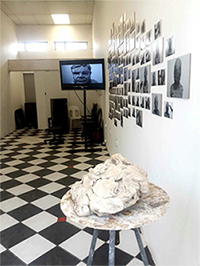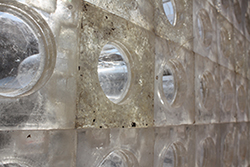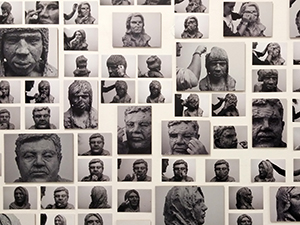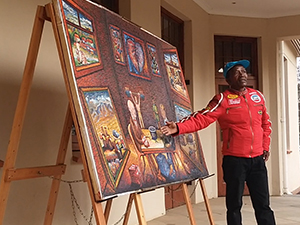
What’s the Difference deur Tanya Britz
Photo: Lelanie de Wet |
Launching the annual Arts 4 Social Justice (A4SJ) week, taking place from 12-19 August 2015 at the Institute for Reconciliation and Social Justice (IRSJ) the Bloemfontein Campus was alive with artworks placed in various buildings and open spaces.
Angelo Mockie said, “This is an opportunity to share knowledge.” Mockie is the coordinator of the annual Arts 4 Social Justice week which gives artists a platform to convey their experiences, and engage students and the public on social issues of national significance.

Meaningful Places deur Adelheid von Maltitz, bygestaan deur Nicolene Jonker en Xoliswa Msimango
Photo: Michelle Nothling |
Coinciding with the week’s events, the IRSJ launched the National Flagship Project in the Visual Arts, funded by the National Arts Council. The theme of the project is ‘Emancipating the African voice in the visual arts for social cohesion purposes’. According to Mockie, “this endeavour is crucial to confronting the histories, policies, and practices that have shaped and constrained the intellectual and social mandates of higher education institutions.”
Adelheid von Maltitz, Klas Thibeletsa, Richard Bollers, and Jaco Spies were some of the artists exhibiting their creative work. A host of students from the university’s Fine Arts Department also presented their works across the campus.
The focus on social justice aims to inspire audiences toward developing engaged citizenship and cohesive communities.

What’s the Difference deur Tanya Britz
Photo: Michelle Nothling | 
History is the Required Process by Motseokae Klas Thibeletsa
|